National Women’s History Month 2017 Theme:
“Honoring Trailblazing Women in Labor and Business”
The 2017 theme for National Women’s History Month honors women who have successfully challenged the role of women in both business and the paid labor force. Women have always worked, but often their work has been undervalued and unpaid.
The 2017 Honorees represent many diverse backgrounds and each made her mark in a different field. Additionally, the Honorees’ work and influence spans three centuries of America’s history. These women all successfully challenged the social and legal structures that have kept women’s labor underappreciated and underpaid.
Facing stark inequalities in the workplace (lower wages, poor working conditions, and limited opportunities), they fought to make the workplace a less hostile environment for women. They succeeded in expanding women’s participation in commerce and their power in the paid labor force. As labor and business leaders and innovators they defied the social mores of their times by demonstrating women’s ability to create organizations and establish their own businesses that paved the way for better working conditions and wages for themselves and other women.
They proved that women could succeed in every field. While each Honoree is extraordinary, each is also ordinary in her own way, proving that women business and labor leaders can and should be considered the norm. Most importantly, the 2017 Honorees paved the way for generations of women labor and business leaders to follow.
2017 National Women’s History Month Honorees
Rebecca Anderson
(1940)
Community and Economic Development Organizer
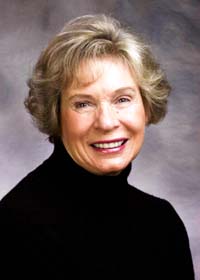
Rebecca “Becky” Anderson and a team of Western North Carolinians created HandMade in America. She was founding director of the organization, which established a craft-focused economy for 25 counties in the state. It became a cultural heritage model for National Heritage Areas, and a model for 16 state programs.
As Director of Handmade, Anderson coordinated major projects in tourism, small town revitalization, and education programs for school systems. She established The Center for Craft, Creativity and Design for the North Carolina University system. Her heritage tourism program began with Craft Heritage Trail guidebooks taking visitors through 23 counties to studios, galleries and local heritage sites. As a result craft maker incomes increased by 23%. Under Anderson’s leadership, Handmade received multiple honors including the Award of Merit for Sustainable Development from Renew America, Inc. In 2003 Worth Magazine ranked Handmade one of the top 24 arts non-profits in the U.S.
Handmade’s Small Town Revitalization Programs included 13 towns with populations under 1,000, and over 12 years achieved 177 facades restored; 212 buildings renovated; 1,350 jobs created; 349 new businesses; 83 business expansions; $9 million public money invested; $43 million private money invested; and 183,713 total volunteer hours provided in towns with no town managers or town planners. In partnership with the local community college and Resource Conservation Development District, Handmade established two craft incubators for ceramics and glass at a closed landfill using the methane gas from the landfills as the power source. An EPA LMOP feasibility study concluded the removal of methane gas was equal to planting 14,000 trees or removing 21,000 cars off the roads. Craft residents went on to establish 17 new businesses.
Prior to founding Handmade, Becky Anderson was also Director of: Community Development, Land of Sky Regional Planning Council, served as Director of Economic Development for the Ashville, NC Chamber of Commerce, and as Director of Economic Development for the city of Ashville. In 2000 Anderson was named among U.S. News and World Report’s list of the United States top 20 visionaries.
Barbara Hackman Franklin
(1940)
Former Secretary of Commerce
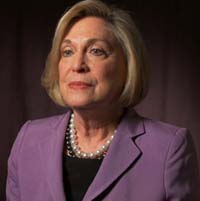
Barbara Hackman Franklin’s career is trailblazing for both her extensive government and private sector work and for her efforts to open the doors to other women leaders. Serving five presidents, Franklin led efforts to increase the number of women in government, normalized commercial relations between the U.S. and China, and is an expert on corporate governance.
Franklin’s public service began in 1971, as a staff assistant to President Nixon. She led the first White House effort to recruit women for high-level government jobs, nearly quadrupling the number of women in those positions (1971-73). Her efforts are recounted in the 2012 book by Lee Stout, A Matter of Simple Justice: the Untold Story of Barbara Hackman Franklin and A Few Good Women. Following this, she was appointed an original Commissioner of the Consumer Product Safety Commission, where she focused on safer products for children (1973-78). As the 29th Secretary of Commerce for President George H.W. Bush, she increased American exports with initiatives in China, Russia, Japan, and Mexico. Her 1992 historic mission to China normalized commercial relations with that country, removed the ban on ministerial contact, and brought back $1 billion in signed contracts for U.S. companies. Trade with China grew dramatically in the ensuing years, as did foreign investment.
Franklin is President and CEO of Barbara Franklin Enterprises, a private international consulting firm. She has served on the boards of directors of numerous public companies, private companies, and non-profit organizations. She has also served in leadership roles for many professional organizations and was a founding member of Executive Women in Government (1973). Franklin graduated with distinction from the Pennsylvania State University and was one of the first women graduates of the Harvard Business School. Among her many honors, awards, and honorary degrees, she was inducted into the Connecticut Women’s Hall of Fame (2013), The National Association of Corporate Directors (NACD) Directorship Hall of Fame (2014), and the Financial Executives International Hall of Fame (2015). She resides in Washington, DC and Bristol, CT with her husband Wallace Barnes.
Alexis Herman
(1947)
Former Secretary of Labor
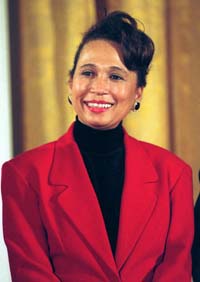
Born in Mobile, Alabama, Herman began her career working for Catholic Charities helping young people find work. At the age of twenty-nine, President Carter’s appointment made her the youngest director of the Women’s Bureau in the history of the Labor Department. In 1992, she became the 1st African American woman to serve as an Assistant to the president as the Director of the White House Office of Public Liaison. On May 1, 1997, Herman was sworn in as America’s 23rd Secretary of Labor and the first African American ever to lead the United States Department of Labor. During her tenure as a member of the President’s Cabinet she also served as a valued member of the National Economic Council.
As Secretary, Herman focused on a prepared workforce, a secure workforce, and quality workplaces. With that mandate in mind, she consolidated the Department’s wide array of skills development programs into a simpler, more efficient system. Herman led the effort to institute a global child labor standard; moved people from welfare to work with dignity; and launched the most aggressive unemployed youth initiative since the 1970’s. Under her tenure, unemployment reached a thirty-year low and remains so today. The nation witnessed the safest workplace record in the history of the Department of Labor. Currently Alexis Herman serves as chair and CEO of New Ventures, LLC a Risk Management Firm.. She continues to lend her expertise and talent to many corporate enterprises and nonprofit organizations. Herman is a former trustee of her alma mater, Xavier University of Louisiana. She Co-Chaired the Bush Clinton Katrina Fund and was a member of the board of the Clinton Bush Haiti Fund. Presently, she chairs the Toyota Diversity Advisory Board. Her nonprofit work today includes: serving as a Trustee for the National Urban League, a member of the Executive Board of Delta Sigma Theta Sorority, Inc., and the president of the Dorothy I. Height Educational Foundation.
Lilly Ledbetter
(1938)
Equal Pay Activist
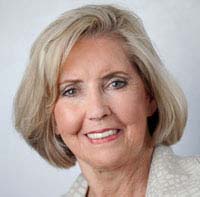
Lilly Ledbetter took her case of employment discrimination all the way to the U.S. Supreme Court and beyond. Today she is a women’s rights and civil rights activist and sought after speaker. Ledbetter grew up near Jacksonville, Alabama; she married, had two children, and worked various office jobs. In 1979 she got her dream job working as a manager at the local Goodyear tire factory. As the only woman working on the factory floor, she faced daily sexual harassment. Despite the discrimination, she worked hard and stayed at Goodyear, hoping it would eventually get better. In 1998, after 19 years with the company, Ledbetter received an anonymous note informing her that she was paid significantly less than men doing the same job. In response, Ledbetter filed a sex discrimination case against her longtime employer.
The case, Ledbetter v. Goodyear Tire & Rubber Co., was tried and found in Ledbetter’s favor, but Goodyear appealed and her win was reversed. In 2007 the U.S. Supreme Court ruled 5-4 against Ledbetter, arguing that she would have had to file her complaint within 180 days after receiving her first discriminatory paycheck. Justice Ginsberg’s dissent argued that Ledbetter couldn’t have filed suit earlier because she was not aware of the pay inequity; Ginsberg urged her to keep fighting. Ledbetter did keep fighting. In August 2008 she spoke about pay equity at the Democratic National Convention. On January 29, 2009, President Obama signed the Lilly Ledbetter Fair Pay Act into law. The new law loosens the time restrictions on filing discrimination cases, allowing the 180-day clock to reset every time an individual experiences an act of discrimination. Despite this victory, Ledbetter never received a settlement from Goodyear.
Lilly Ledbetter is now an activist, urging women and minorities to fight for their civil rights. In 2012 she released her memoir Grace and Grit: My Fight For Equal Pay and Fairness at Goodyear and Beyond.
Kate Mullany
(1845 – 1906)
Organized First All-Female Labor Union
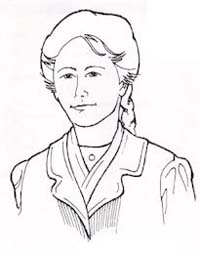
Kate Mullany formed the nation’s first bona fide all-female union. In 1864 she organized over 300 of her fellow Troy, New York laundresses into the Collar Laundry Union.
Born in England of Irish parents, Mullany immigrated to the U.S. with her family and, following her father’s death, went to work to support her mother and siblings. Mullany worked in one of Troy’s 14 collar laundries, where women worked 12 to 14 hour days washing, starching, and ironing. Although considered a good job, working conditions were dangerous and wages were low. Inspired by the successful efforts of local tradesmen, Mullany organized her fellow laundresses. Organizing was challenging, as many of the women had family obligations after work and there was no large venue for them to meet, but Mullany was determined, and the Collar Laundry Union was born.
On February 23, 1864 Mullany and her fellow workers walked out of their jobs in Troy’s laundries and went on strike. Mullany and the union demanded higher wages and safer working conditions. At first the laundry owners refused to negotiate, but the Collar Laundry Union, supported by the local Iron Molder’s Union, refused to budge on its demands. After five days, a few of the laundry owners finally gave in and agreed to increase wages by 25 percent, and the following day the remaining laundries followed. The strike was a success. In recognition of her leadership, Mullany was the first woman to become an officer of a national union when she was selected assistant secretary of the National Labor Union in 1868. She later moved to Buffalo, where she married John Fogarty and opened the Troy Laundry.
Kate Mullany died in 1906. She was inducted into the National Women’s Hall of Fame in 2000and the Labor’s International Hall of Fame in 2016. Her home in Troy was designated a National Historic Landmark in 1998 and a National Historic Site by Congress in 2004. It is owned and being restored by the American Labor Studies Center. It is also listed on New York State’s Women’s Heritage Trail. For more information visit http://www.katemullanynhs.org/.
Lucy Gonzalez Parsons
(c. 1853 – 1942)
Labor Organizer and Socialist Leader
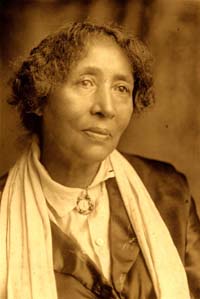
Lucy Gonzalez Parsons was a labor organizer, radical socialist, and anarchist. She was a founder of the Industrial Workers of the World and was a prolific writer and speaker. At the height of her activism, Parsons was described by the Chicago Police Department as “more dangerous than a thousand rioters.” Lucy Gonzalez had Native American, African American, and Mexican heritage and may have been born into slavery. She married Albert Parsons in 1871. Due to intolerance of their interracial marriage, the couple was forced to move north from Texas. Relocating to Chicago, Illinois, the Parsons became increasingly involved in revolutionary activism championing workers’ rights, political prisoners, people of color, the homeless, and women. Lucy Parsons wrote for multiple radical publications including The Socialist, and The Alarm, the journal of the International Working People’s Association.
The Parsons were arrested numerous times for giving public speeches and distributing anarchist materials. In 1887, her husband was arrested and subsequently executed in Illinois for his assumed involvement in the Haymarket Riot, believed by many to be a frame-job. In 1905 Parsons was a founder of the Industrial Workers of the World, an international organization that believes that all workers should unite as a social class. Focus on class struggles of poverty and unemployment, Parsons, in 1915, organized the Chicago Hunger
Demonstrations, sparking a huge demonstration the following month with collaboration from the American Federation of Labor, the Socialist Party, and Jane Addams’ Hull House. Parsons is credited with envisioning strikes of the future, where rather than walking out strikers would stay in and take over the property of production, what would become sit-down strikes in the U.S.
Lucy Parsons continued giving public speeches well into her 80s In 1942 at the age of 89, Lucy died in a house fire. In 1970 the Lucy Parsons Center, a Boston based radical bookstore, was founded. The city of Chicago named a park in her honor in 2004.
Barbara “Dusty” Roads
(1928)
Flight Attendant’s Union Leader
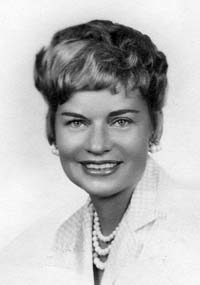
Barbara “Dusty” Roads is a former flight attendant who fought against the airline industry’s sexist working conditions and regulations. Dusty was hired as an American Airlines stewardess in 1950. In 1953, her employer insisted on a contract clause that all stewardesses hired after Dec. 1, 1950 would be fired at age 32; the rule soon became an industry-wide standard. Dusty called out the rule as gender discrimination and urged her union, ALSSA (Airline Stewards and Stewardesses Association) to fight against it. After serving as contract negotiator and Chair of the Los Angeles base of ALSSA, Dusty was appointed ALSSA’s national Washington D.C. lobbyist in 1958. As a lobbyist she testified at hearings about airline safety, training, certification, and unfair age regulations. She befriended Rep. Martha W. Griffiths and Sen. Margaret Chase Smith, who both supported her cause. In 1963, Dusty’s efforts led to an early attempt at writing a bill to repeal the age rule. Dubbed “The Old Broads Bill”by Congressmen, it failed. In her next move, Dusty and other stewardesses held a press conference to protest the age policy. It captured national media attention and a debate on the airlines’intentions ensued.
In 1965 Dusty entered the Equal Employment Opportunity Commission (EEOC) agency the day it opened and filed the first anti-discrimination complaint in the United States on behalf of her colleague, Jean Montague. After a three year EEOC fight, the age regulation was finally overturned under threat of a union strike in 1968. In 1977 Dusty helped form a new independent union, the Association of Professional Flight Attendants (APFA), which remains the largest independent union in the country. She retired at age 66. Now in her late eighties, Dusty continues to promote the need to protect hard fought employee rights that are in jeopardy today. Several books on the history of the women’s movement cite her contributions and she has been featured in many radio and TV programs, including an episode of the original PBS Makers documentary. http://www.makers.com/dusty-roads
Andra Rush
(1960)
Founder/ CEO, Rush Group
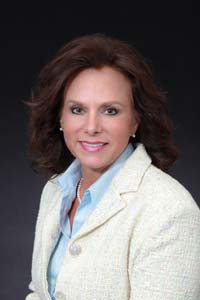
As founder, chair, CEO and president of Rush Group, which operates Dakkota Integrated Systems, Detroit Manufacturing Systems and Rush Trucking Corporation, Andra Rush leads the largest woman-owned business enterprise in Michigan, and one of the largest Native American-owned companies in the U.S.
In 1984, Rush borrowed $5,000 from her parents and used her credit cards to launch Rush Trucking with one van and two pickups. Today, Rush Trucking Corporation transports goods for Fortune 100 companies across the U.S. and Canada with 1,100 trucks and 700 drivers.
Her mission from the very beginning has been to create sustainable job opportunities in underserved communities.
Rush launched Dakkota Integrated Systems in 2001, providing service to original equipment manufacturers by managing the complete assembly and sequencing of integrated automotive interiors through a joint venture with Magna International Inc. Dakkota, recognized for supplier development and diversity by the Michigan Minority Supplier Development Council, employs 2,200 highly trained team members, and was named Supplier of the Year for quality and world-class manufacturing by Chrysler Group in 2013 and Supplier of the Year for three consecutive years, 2013, 2014 and 2015, by General Motors.
President Barack Obama acknowledged Rush during his 2014 State of the Union address for creating manufacturing jobs in Detroit with the June 2012 opening of Detroit Manufacturing Systems, a joint venture with Faurecia –the first such plant opening in the city in decades.
The automotive supplier’s workforce has since grown to nearly 1,000, most living in Detroit.
Rush is a member of the U.S. Manufacturing Council, the principal private sector panel that advises the Commerce Secretary on government policies and programs and their impact on the manufacturing sector. She is an active member of several organizations, including Business Leaders for Michigan, Detroit Economic Club, Detroit Regional Chamber, Detroit Workforce Board and United Way.
In October 2014, she was inducted into the Michigan Women’s Hall of Fame.
Nina Vaca
(1971)
CEO and Chairman of Pinnacle Group
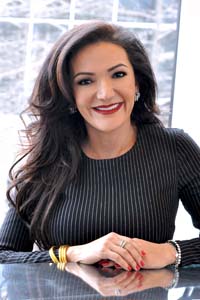
Nina Vaca is Pinnacle Group’s Founder, Chair, and Chief Executive Officer. Her dynamic leadership over the past 20 years has propelled the company from a niche IT services firm to the workforce solutions powerhouse it is today. Vaca is living proof of what is possible in this country. She is a trailblazer as one of the very few Latinas elected to serve as director of a publicly-traded company. Pinnacle’s evolution and astronomical growth is the result of Vaca’s fearless approach to overcoming challenges and her intense focus on delivering impeccable service and putting people at the heart of everything. Pinnacle has been named to the Inc. 500/5000 list of fastest growing companies for over a decade and in 2015 was named the Fastest Growing Women Owned/Led Company in the U.S. by the Women Presidents’ Organization. Vaca serves on three boards, and is determined to empower more women to follow in her footsteps through her At the Table initiative. She holds three honorary doctorates from notable universities and is the youngest graduate in her alma mater’s history to be honored as a distinguished alumna.
Vaca has been featured in numerous publications and is a sought-after speaker and thought leader. This year Vaca joined the 2016 Class of Henry Crown Fellows at the Aspen Institute. A global leader, Vaca is a German Marshall Memorial Fellow and part of the British-American Project. As a PAGE ambassador, Vaca has spoken to and inspired entrepreneurs all over the world, traveling to countries on five continents to empower the next generation of business leaders.
Vaca is a committed civic leader and philanthropist. She advocates passionately for women and entrepreneurs and works to advance girls and women in STEM fields. In 2014, the White House appointed Vaca as a Presidential Ambassador for Global Entrepreneurship. She also serves as Chair Emeritus of the United States Hispanic Chamber of Commerce. An avid athlete, Vaca has participated in iconic races, recently raising $100,000 to help entrepreneurs. https://pinnacle1.box.com/s/am19beaowifdd3vc4q0ybacssnwwm231
Maggie Lena Walker
(1864 – 1934)
Businesswoman and Community Banking Leader
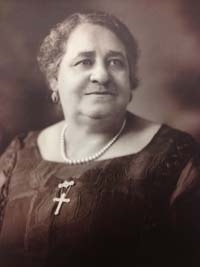
Maggie Lena Walker was the first African American woman in the U.S. to charter a bank. Her success as a business leader and community organizer made her an inspiration to African Americans and women across the country.
Raised in post-Civil War Richmond, Virginia, Walker gained leadership experience as a teenager when she joined the Independent Order of St. Luke. This fraternal organization promoted humanitarian causes and encouraged individual self-help efforts. Walker held numerous leadership positions and in 1899 she took the top leadership role of Right Worthy Grand Secretary; a post she held until her death. Under Walker’s leadership the Order significantly increased its number of chapters and greatly improved its financial solvency.
In 1902 she created a newspaper, the St. Luke Herald, to improve communication between the Order and the public. In 1903 Walker established the St. Luke Penny Savings Bank and served as its first president. Walker gained notoriety as the first African American woman to charter a bank. Walker’s bank later merged with two others, forming the Consolidated Bank and Trust Company, and she served as chair of the new bank’s board of directors until her death. The bank thrived as the oldest continuously African American-operated bank in the U.S. until 2009.
Walker’s continued success in business gave her additional opportunities to pursue her goals of empowering African Americans and women. She served on the boards of many women’s groups including the National Association of Colored Women, and the Virginia Industrial School for Girls. Walker served as a local vice president of the NAACP and as a member of the Virginia Interracial Commission.
Maggie Walker was married to Armstead Walker Jr. and the couple had two sons. She died in 1934 after suffering from paralysis and being confined to a wheelchair for the last six years of her life. Her home, in the historic Jackson Ward neighborhood of Richmond, is now a National Historic Site operated by the National Park Service.
Yvonne Walker
(1959)
President, Service Employees International Union (SEIU) Local 1000
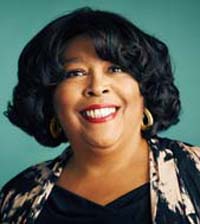
Yvonne Walker is President of SEIU Local 1000. Her efforts towards economic and social justice are felt not only by her California constituents, but also by workers across the country and around the world.
Walker grew up in a military family and served herself as a Marine, where she honed her leadership skills. In 1995 she took a job as a legal secretary for the California Department of Justice. She soon got involved in her union and led efforts to organize her colleagues. Walker quickly rose in union leadership serving as Chair of the Office & Allied Workers Bargaining Team, and later as Vice President of Bargaining statewide. In 2008 Walker became President of SEIU Local 1000, the first African American women to serve in this role. As President, Walker represents more than 95,000 public and private sector employees in CA. Her leadership has empowered workers and their families to have a collective voice in the fight for economic and social justice. She leads struggles against cuts to pensions, wages, benefits, and health care. Known as an expert problem solver and innovative thinker, Walker is a sought after contributor to many national and international efforts. She served on the board of SEIU’s International Futures Committee, which brings together union leaders worldwide to strategize about visions for the future and how to get there. Walker is especially committed to the fight for retirement security. Towards this effort she chairs SEIU’s International Retirement Security Committee and sits on California’s Secure Choice Retirement Investment Board.
Though in many leadership roles, Yvonne Walker is always on the front lines of the fight with and for the rights of low-wage workers. Her efforts have won her the trust of the 95,000 California workers she represents. She has also received awards from numerous organizations, most notably the Coalition of Labor Union Women.
Addie L. Wyatt
(1924 – 2012)
Labor Union Leader and Civil Rights Activist
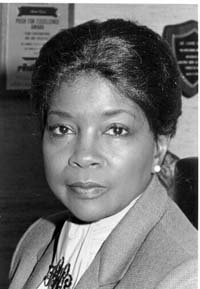
Born in Mississippi in 1924, she came to Chicago in 1930 and helped care for her seven brothers and sisters. She married Claude S. Wyatt Jr. at the age of 16 and applied for a job as a typist for Armour and Company. However, African American women were not hired as typists so she was sent to the canning department.
In 1953, Wyatt became the first black woman elected to office in Local 56 of the United Packinghouse Workers of America (UPWA). An ordained minister, she and her husband founded the Vernon Park Church of God in Chicago in 1955 and began their work with Dr. Martin Luther King, Jr. They participated in major civil rights marches including the March on Washington and the march from Selma to Montgomery, Alabama.
Addie Wyatt was also a leader in the struggle for the Equal Rights Amendment. Eleanor Roosevelt appointed her to the United States Commission on the Status of Women in the early 1960s and in 1966, she was a founding member of the National Organization for Women.
Wyatt became a founding member of the Coalition of Black Trade Unionists in 1972. Two years later she was the pivotal force in the founding of the Coalition of Labor Union Women (CLUW) where she gave the keynote speech addressing 3,200 women.
In 1975, TIME Magazine named her one of the “Twelve Women of the Year.” A year later she became International Vice President of the United Food and Commercial Workers. As a leader in the labor movement, the civil rights movement and the women’s right movement, Addie L. Wyatt was known for her patience and persistence. She was a conciliator who built bridges for greater inclusion and for leadership opportunities for women and minorities. She counseled Barack Obama when he was a young community organizer in Chicago. Rev. Addie L. Wyatt passed away in 2012.There she fought against gender and race based inequities and for equal pay for equal work. Play Video https://www.cliohistory.org/click/?video=1467#c1467
Norma Yaeger
(1930)
First woman stockbroker to be permitted on the floor
of the New York Stock Exchange (NYSE)
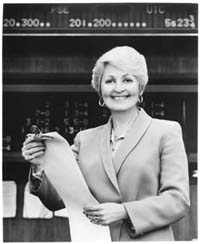
Norma Hason Nahmias Yaeger is a trailblazing stockbroker who fought for women’s right to join men on the floor of the New York Stock Exchange. She went on to found a mutual fund and two security brokerage firms.
Norma Hason, of Sephardic Jewish heritage, married young, stayed at home with her children, and deferred to her husband as the breadwinner. After her husband lost his job, Norma started dreaming of a better life and knew the one thing that interested her most was the stock exchange. In 1962 Norma enrolled in the Hornblower & Weeks, Inc. stockbroker-training program and became the first woman graduate. Not knowing any other women in the industry, she successfully fought to join her male classmates on the New York Stock Exchange floor. The NYSE did not previously allow women on the floor and Norma Yaeger is recognized as the first woman stockbroker to break that barrier. Norma also became the first woman on the Hornblower& Weeks Management Advisory Board.
Norma Yaeger remarried and moved to California where she started the registration of the state’s first Money Market Mutual Fund, The Liquidity Fund. In 1981 Yaeger opened her own brokerage firm, Yaeger Securities. She opened a second firm in 1991, Yaeger Capital Markets, to service government pension plans. At the height of her career, Yaeger’s firms did millions of dollars of trades each day. Norma held licenses with the New York Stock Exchange, National Association of Security Dealers, Chicago Board of Options, and the Commodity Exchange. She sold her firm and retired in 1998. The following year Representative Loretta Sanchez (D, CA) presented Yaeger with the United States Congress Award.
Norma raised five children with her husband Larry Yaeger. Now in her 80s, she continues to give lectures across the country on women’s empowerment. In 2014 Yaeger published her memoir Breaking Down the Walls. Her story is now being developed into a motion picture.
